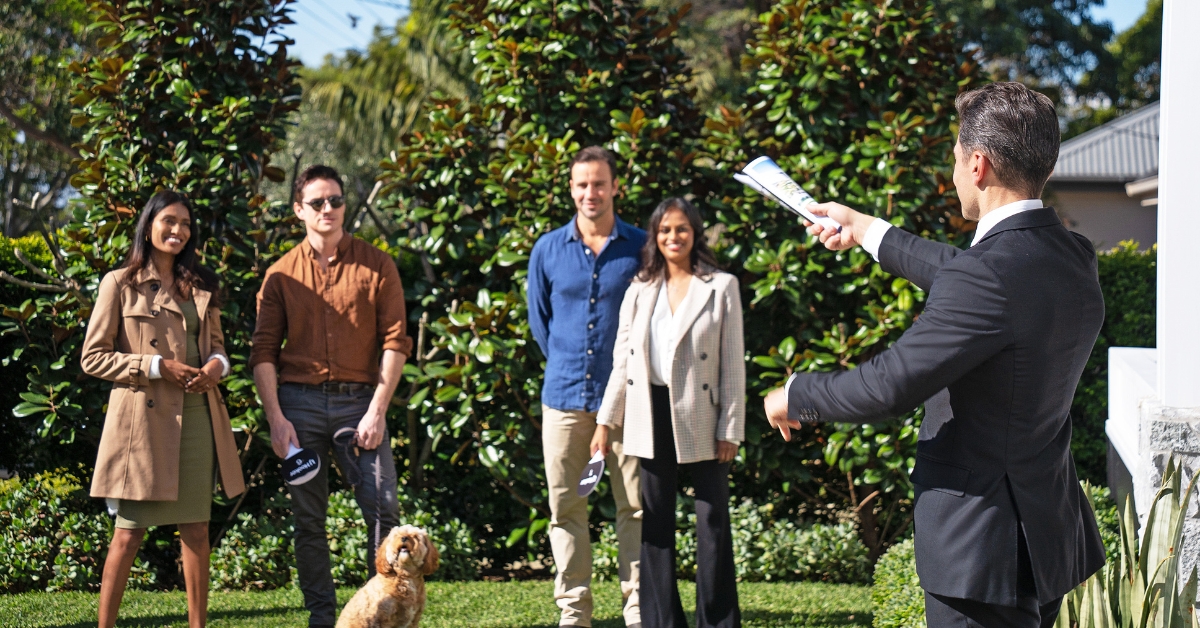What to Expect on Auction Day

Over the last couple of months David Holmes, Auctioneer, has been sharing his insights into how best to sell a home by auction. This month he discusses the auction day itself and what exactly will happen. Knowing how the day will flow will help keep your nerves in check…. Which is very important as auctions can be quite stressful.
OK…so the big day has arrived. To keep the nerves under control, think of the auction as a process, a process that will get your property sold in a great time frame with a great result. Being process focused, not out come focused is key here.
1. Meeting the agent and advising reserve
Two days before the auction you should meet with your agent to go through the auction day strategy and set the reserve. During this meeting you will confirm the following important information:
• Any offers and market feedback
• Your reserve price
• How many bidders are expected to attend?
• How and when you will communicate with the agent and auctioneer during the auction
• What happens if the reserve is not met?
• How any vendor bids will be used?
• Run of the day
2. Pre-auction inspection
Most agents will open your property for one final inspection. Frequently we have buyers turn up on auction day for the first time so make sure your property is looking spotless and well-presented. You never know you may pick up a buyer at the last minute and you certainly don’t want to deter buyers that are there to bid.
If the auction is on-site, set up a suitable area to hold the auction. Usually it is held in the garden or on the front footpath, however your agent and auctioneer will be able to guide you.
3. Registration of Bidder
In most states, all interested buyers are required to register before the auction commences in order to receive a bidder’s number. This protects you, the seller from people who may not complete the auction process.
4. Start of the Auction
At the start of the auction the auctioneer will detail the positive attributes of your property and outline the state laws and settlement terms applying to this particular property including whether vendor bids will be used.
5. Bidding
Now things are really start to heat up….. The auctioneer will call for an opening bid or in other words the first bid from the crowd.
From this point onwards the auctioneer will control the flow of the bidding and will encourage bidders to go higher, but at the end of the day, each bidder decides how much they are prepared to pay and the seller decides whether they’re prepared to sell at that price.
6. If the property doesn’t sell under the hammer
If your property doesn’t sell under the hammer don’t panic, the great news is both you and your agent have an overwhelming amount of intelligence as to what the market will potentially pay to purchase your property, plus your agent has a book of potential buyers to talk to. In my 12 years’ experience a sale is normally made soon after the auction so don’t be alarmed if it doesn’t sell under the hammer.
7. Completion of Sale
If your reserve price is reached during the auction, the hammer will sell to the highest bidder. The winning bidder will sign the contract there and then, pay a deposit which is normally 10% of the winning bid…… and you can pop open the champagne!
DISCLAIMER - The information provided is for guidance and informational purposes only and does not replace independent business, legal and financial advice which we strongly recommend. Whilst the information is considered true and correct at the date of publication, changes in circumstances after the time of publication may impact the accuracy of the information provided. LJ Hooker will not accept responsibility or liability for any reliance on the blog information, including but not limited to, the accuracy, currency or completeness of any information or links.
Share


